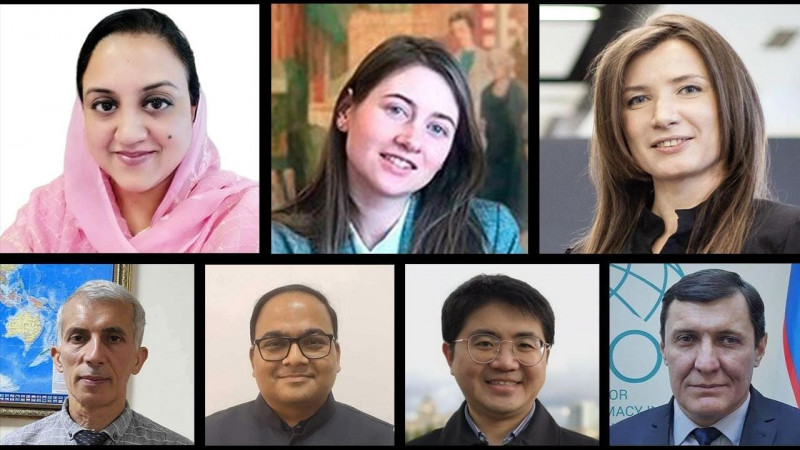Author: Rahmonov Mirsaid

Amidst various challenges faced by countries in the region and across the globe, the member states of the SCO are working together to promote the “Shanghai Spirit.” This Spirit aims to address urgent issues and foster regional security, economic prosperity, and cultural exchange. It is not only valuable for the SCO as an international organization but also has the potential to serve as a model for relations between countries worldwide. By encouraging harmony and cooperation, it inspires collective progress and prosperity for everyone involved. These points were shared by speakers during the Webinar on “SCO Summit 2023: Implications, Challenges, and Future Prospects.” The event was organized by the Pakistan-SCO Friendship Forum and the Center of SCO Studies, Institute of Peace and Diplomatic Studies(IPDS). Distinguished academics and experts from SCO member states provided valuable insights about the recent SCO 2023 Summit and its implications for the future. Speakers emphasized the vital role of people-to-people collaboration and joint efforts in finding effective solutions to complex global challenges such as climate change, extremism, technological advancements, and economic stability. They expressed a shared belief that through collective action, the SCO member states can create a more interconnected and sustainable future. Dr. Farhat Asif, President of IPDS, highlights the importance of the webinar and the center’s vision for promoting research, cooperation, and people-to-people ties in SCO. Throughout the event, speakers analyzed the challenges and prospects faced during the SCO summit and highlighted the importance of promoting the “Shanghai Spirit” by strengthening connections among people. During the discussions, Dr. Sakti Prasad Srichandan, an Assistant Professor at Jawaharlal Nehru University, highlighted India’s achievements as the chair of the recent SCO Summit 2023. He mentioned India’s efforts in promoting soft sectors like medicine, culture, and innovation, as well as SCO’s progress toward expanding membership among member countries. Kang Jie, an Associate Research Fellow from the Department for European-Central Asian Studies at the China Institute of International Studies (CIIS), stressed the need for field cooperation and enhanced community collaboration to address challenges. He also proposed building collaboration through joint research. Kabuljon Sabirov, Director of the SCO Centre for Public Diplomacy in Uzbekistan, advocated essential initiatives like a unified corridor map, climate change coordination, tourism development, and collaborative measures to counter regional challenges. He believed SCO’s initiatives and endeavors would foster regional connectivity, peace, and stability. Dr. Lidiya Parkhomchik, an Expert from the Institute of World Economics and Politics in Kazakhstan, highlighted the positive outcomes of the SCO 2023 summit and expressed enthusiasm about Kazakhstan’s hosting of SCO 2024. She described the SCO as a central force in international diplomacy. Julia Melonikov, a Program Manager at the Russian International Affairs Council, emphasized that the SCO region serves as a forum for resolving differences that may cause the region to prosper. She highlighted the organization’s role in promoting peace, development, and cooperation. Mirsaid Rahmonov, a Senior Analyst at the Institute of Asian and European Studies in Tajikistan, shared his perspective on achieving lasting peace. He emphasized elements like economic activation, connectivity, and eliminating threats as crucial components of a peaceful regional approach. The webinar witnessed a large number of participants, including academics, journalists, students, and faculty members from different regions of Pakistan and the globe. It provided an enriching experience for all attendees, who gained valuable knowledge and insights from the discussions.
By Daily Parliament Times July 20, 2023
Islmabad/ Pakistan
Contributed by Mirsaid Rahmonov
Institute of Asian and European Studies Tajikistan